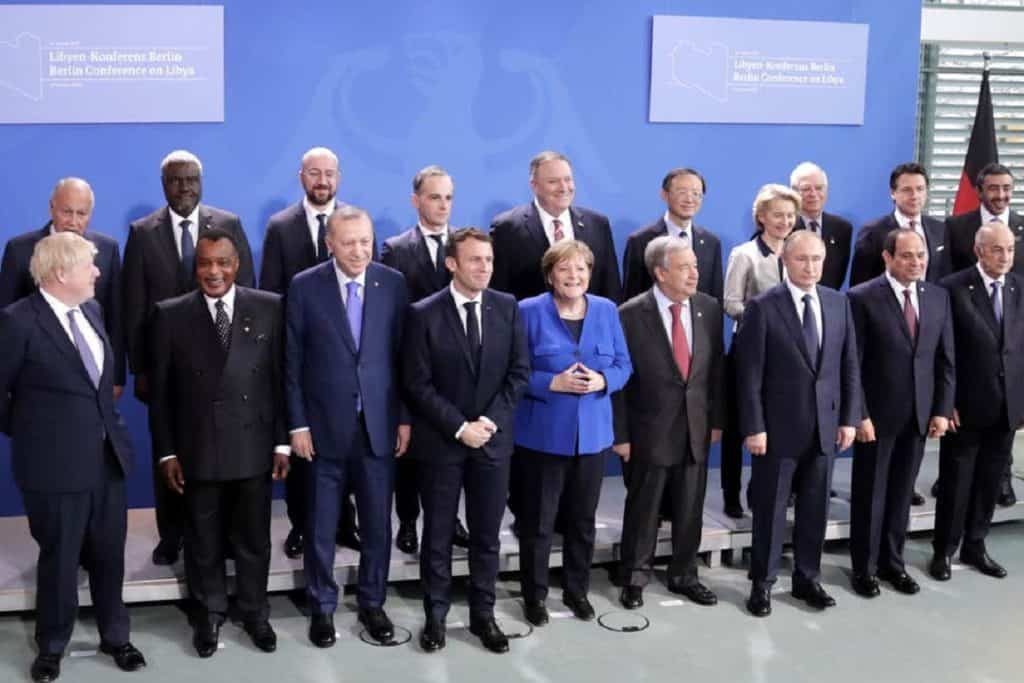By Denis Korkodinov
Moscow and Ankara rapidly put the Libyan file on the agenda of the international community.
Russia is not against entering into a confrontation with Turkey in Libya, given the fact that the geopolitical benefits of this confrontation will be much greater than the costs.
Meanwhile, the Turkish experience of conducting military campaigns in Syria allows Recep Erdogan to broadcast it and the Libyan theater to strengthen its position in the eastern Mediterranean and North Africa. Based on this, the interests of Russia and Turkey in Libya, despite the obvious contradictions, complement each other.
As part of the process of discussing the Libyan crisis, the Russian leadership managed to ensure a temporary ceasefire, which made it possible to clarify the positions of the parties and offer them a draft political solution. Eastern Libya in Moscow was represented by the commander of the Libyan National Army Khalifa Haftar and speaker of the parliament Akila Saleh, while the official Tripoli was represented by the head of the Government of National Accord Fayez al-Sarraj and the head of the Supreme State Council Khaled al-Mashri.
The uniqueness of the Moscow meeting was that Russia for the first time took upon itself the obligations of the guarantor of the Libyan dialogue. And this was possible in many ways, thanks to Turkey. In particular, if Ankara had not signed an agreement of understanding with Tripoli and had not provided military assistance to the Al-Vefak government, Russia would not have intensified its efforts with regard to Libya.
The diplomatic victory of Ankara and Moscow came almost immediately after they announced their plans to intervene in the Libyan conflict. In turn, Vladimir Putin acted as a headliner of external participation in Libya, providing military support to the forces of Khalifa Haftar. However, before the Turkish intervention, the Russian military presence was in a state of stagnation, which, in general, did not affect the alignment of forces of the Libyan National Army and the Government of National Accord.
In turn, the Turks announced the sending of their military contingent to Libya almost simultaneously with the April attempt by Khalifa Haftar to begin a campaign on Tripoli. As the offensive of the Libyan National Army developed, Ankara stepped up its support for the Al-Vefak government, and as a climax concluded an agreement on mutual understanding and military assistance, arguing that Libya was part of the Ottoman Empire. Meanwhile, while Turkey does not seek to enter into an open armed confrontation with the forces of Khalifa Haftar because of fears of a reaction, primarily from Russia, Egypt and the United Arab Emirates.
Experts note that the increased activity of Russia and Turkey in Libya took the Western countries by surprise, which proceeded from the opinion that Vladimir Putin and Recep Erdogan would not be able to simultaneously develop their interests both in Syria and in other countries of the Greater Middle East. Of particular concern was France, which had repeatedly tried to seat Khalifa Haftar and Fayez al-Sarraj at the same negotiating table. However, Russia and Turkey seized the initiative, which inflicted a reputation blow on Emmanuel Macron.
Meanwhile, Europe is still interested in gaining full control over the Libyan file. In this regard, Italian Prime Minister Giuseppe Conte met with Turkish President Recep Erdogan, as a result of which the parties came to the conclusion that it was possible to resolve the Libyan conflict. However, for this it is necessary to convince Egypt, the United Arab Emirates and Russia that the conflict between the Libyan National Army and the Government of the National Consent should be resolved in the short term, and therefore all participants in the Libyan confrontation must strictly adhere to the ceasefire.
(The opinions expressed in this article are solely those of the author and do not necessarily reflect the views of World Geostrategic Insights)
Image Credit: Mikhail Metzel/TASS







